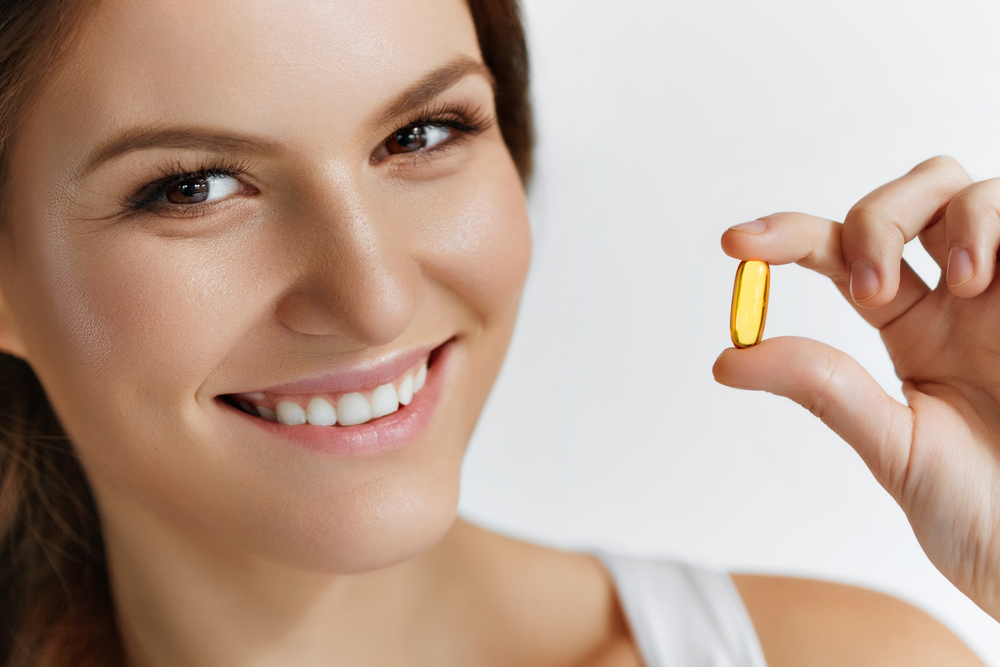Vitamin E in Cosmetics – Why It’s Actually so Important?
So many brilliant ingredients of creams and rejuvenating active substances have been devised but vitamin E still tops them all. It remains on a pedestal and it was the first to be called the vitamin of youthfulness – why it’s so important? What’s so special about vitamin E which makes it a source of beautiful skin, nails and hair?
 Vitamin E in cosmetics – why it’s so crucial?
Vitamin E in cosmetics – why it’s so crucial?
What role does vitamin E play in cosmetics? Calling it the vitamin of youthfulness gives us a clue about its meaning in daily care. It is an exceptionally-strong antioxidant which neutralizes free radicals responsible for the cell ageing processes, irritations and occurrence of wrinkles.
Thanks to vitamin E, processes occurring in skin run properly, the skin isn’t ageing prematurely. By using vitamin E regularly, you’re able to largely delay the appearance of wrinkles, keep the skin supple and care for the good condition of hair and nails.
Vitamin E works for all skin types, supports the regeneration of irritated epidermis and alleviates the scalp (e.g. in the case of psoriasis or eczema). That is why it is a common ingredient in creams for sensitive, easily-irritated and even acne-prone skin. Vitamin E also protects skin from unfavorable action of external elements and harmful UV radiation.
The deficiency of vitamin E causes ageing, dryness and quicker keratinisation of skin, weakens its condition and lowers resistance.
Vitamin E in cosmetics – what problems it deals with?
Vitamin E is one of the top conditioning ingredients. Search for it in face and eye creams, body lotions and hair products. Natural oils are the best source of vitamin E. They have versatile use: feel free to apply oils to your face skin, under the eyes, use them for baths, body massage and hair oil treatments. Exceptionally big concentrations of vitamin E can be found in olive oil, argan oil, avocado oil and raspberry seed oil.
What are vitamin E benefits for skin?
- sweeping free radicals away
- making sure that processes in cells occur properly
- delaying the occurrence of wrinkles
- ensuring nourishment
- regenerating skin
- keeping the right level of moisture
- creating a protective coat on the skin surface
- delivering skin firmness and elasticity
- protecting from dryness
- providing cells with nutrients
- reinforcing the walls of blood vessels
What are vitamin E benefits for hair?
- regulating sebum and preventing dry scalp
- ensuring the proper hair growth
- blocking hair loss
- keeping the right level of moisture in hair and scalp
- strengthening hair bulbs
- preventing hair breakage and damaged hair matrix
- boosting hair shine
- holding back premature hair ageing
- soothing scalp conditions and irritations
- conditioning hair ends, preventing them from splitting
Can you overuse vitamin E?
Similarly to the deficiency of vitamin E – its excess is harmful. Luckily, overusing it isn’t easy. If you take it with supplements, its excess is usually removed from the body. You would have to take over 1000 mg per day in the long run to overuse it.
Vitamin E overuse appears through headaches, muscles feeling faint, disturbed vision and general feeling of tiredness.
Your body’s demand for vitamin E – how much should be delivered?
What’s the average dose of vitamin E that should be delivered per day? It turns out that the amount depends on the age, sex and general condition of a given person. The average demand is:
- around 6 mg for children
- around 10 mg for men
- around 8 mg for women
- around 20-50 mg for the elderly
Vitamin E vs supplements – what makes the best match?
Vitamins don’t like being lonely. To facilitate their absorption and intensify the benefits for skin, hair and nails, use them together with other products. Which vitamins and minerals get on with vitamin E? Vitamin A, group B vitamins, vitamin C, manganese, phosphorus, selenium and essential fatty acids (that’s why combining vitamin E with natural oils brings such excellent beauty benefits).
